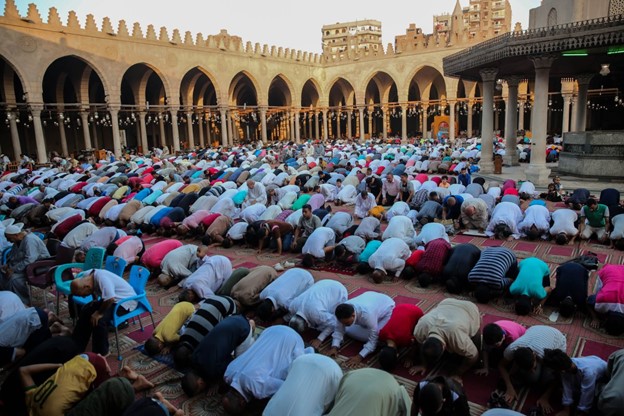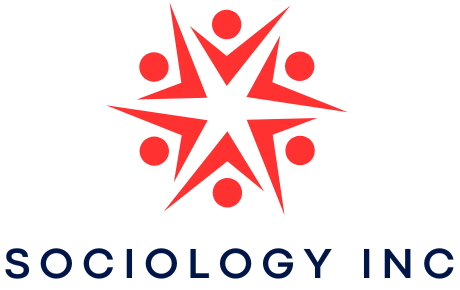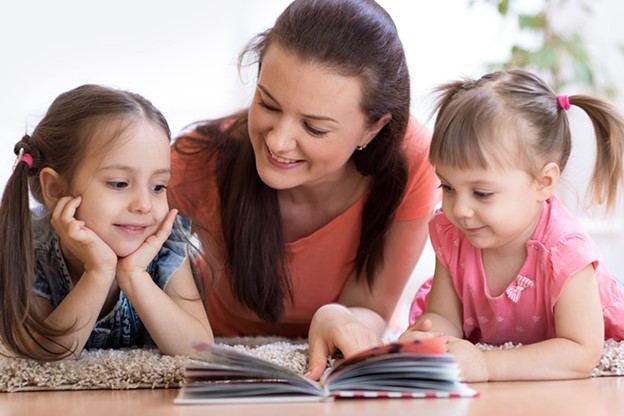From the moment we take our first breath, we embark on a lifelong journey of socialization. It is through socialization that we learn the intricate customs, norms, and values that shape our behavior and interactions within society. Socialization is a process that occurs through various agents, each playing a crucial role in molding our beliefs, attitudes, and identities. In this article, we will delve into the power of socialization and explore its profound impact on our lives.
Agents of Socialization
Socialization occurs through a diverse array of agents that act as catalysts in shaping our worldview. These agents include family, peers, education, media, and religion, among others. Let us explore the significance of each of these agents and their lasting influence.
Family

Our families are our first socializing agents, providing the foundation for our social development. Within the familial setting, we learn core values, traditions, and behavioral patterns. Through observation, imitation, and direct instruction, we acquire essential skills such as language, social etiquette, and moral values. Family shapes our perceptions of gender roles, authority, and interpersonal relationships, laying the groundwork for our interactions beyond the home.
For example, a child raised in a family that prioritizes honesty and respect is more likely to exhibit these traits in their interactions with others. Similarly, a child growing up in a household that values education is likely to internalize the importance of learning and strive for academic excellence.
Peers

As we grow older, our peer group becomes increasingly influential in shaping our behavior and social identities. Peer groups offer a unique space for exploration, acceptance, and the development of social skills. They provide an environment where individuals can experiment with different roles, form lasting friendships, and seek validation.
For instance, adolescents often engage in behaviors and adopt attitudes that align with their peer group to gain acceptance and establish their social status. This phenomenon, known as peer pressure, can be both positive and negative, shaping individuals’ choices and actions.
Education
Education serves as a formal agent of socialization, playing a pivotal role in transmitting societal values and knowledge. Educational institutions expose individuals to a structured curriculum and a diverse range of experiences, enabling them to acquire cognitive skills, socialize with peers from various backgrounds, and engage critically with information.
Schools and universities instill discipline, teamwork, and competition, preparing individuals for the demands of the workforce. They also promote civic values, fostering active citizenship and social responsibility.
Media
In today’s interconnected world, the media has emerged as a powerful agent of socialization. Through television, movies, the internet, and social media platforms, the media influences our attitudes, beliefs, and perceptions. Media shapes our understanding of beauty standards, societal norms, and cultural trends, often blurring the line between reality and fiction.
For instance, the portrayal of certain racial or gender stereotypes in the media can reinforce biased beliefs and perpetuate inequality. Conversely, media platforms also serve as catalysts for social change, providing a platform for marginalized voices and raising awareness about pressing social issues.
Religion

Religion acts as a significant agent of socialization, instilling individuals with a sense of purpose, morality, and community. Religious institutions provide a framework for understanding the world, offering guidance on ethical principles, and shaping personal and collective identities.
Religious socialization encompasses rituals, traditions, and teachings that mold individuals’ behavior, attitudes, and values. For instance, a person raised within a religious community may internalize values such as compassion, forgiveness, and empathy, which influence their interactions with others and their contribution to society.
The Profound Impact of Socialization
Socialization is a continuous and lifelong process that molds our thoughts, actions, and sense of self. Through the intricate web of agents, we internalize the norms and expectations of society, adopting cultural scripts that guide our behavior and interactions.
Moreover, socialization shapes our perception of social roles, identities, and the construction of reality. It influences our aspirations, career choices, and even our political ideologies. Here are some examples:
School Performance
According to a study by the National Center for Education Statistics in the United States, students who have positive social interactions and support within their family and peer networks tend to have higher academic achievement (National Center for Education Statistics, 2016).
Research has shown that parental involvement in education, including supporting learning at home and engaging with schools, positively influences students’ academic performance (Desforges & Abouchaar, 2003).
Likelihood of Arrest

The relationship between socialization and the likelihood of arrest is complex and influenced by various factors. However, research suggests that individuals with strong social bonds, such as strong family relationships, positive peer affiliations, and educational attainment, are less likely to engage in criminal behavior (Hirschi, 1969; Sampson & Laub, 1993).
A study published in the Journal of Research in Crime and Delinquency found that involvement in prosocial activities, such as school clubs and sports, is associated with a reduced likelihood of engaging in criminal behavior among adolescents (Esbensen et al., 2003).
Teenage Pregnancy
The impact of socialization on teenage pregnancy rates is multifaceted. Research has indicated that comprehensive sex education, positive parent-child communication about sexuality, and access to reproductive health services contribute to lower rates of teenage pregnancy (Kirby, 2007).
A study published in the Journal of Adolescent Health found that adolescents who reported having strong parent-child relationships and open communication about sex were less likely to engage in risky sexual behaviors and had lower rates of teenage pregnancy (Hutchinson et al., 2003).
Conclusion
Socialization, facilitated by agents such as family, peers, education, media, and religion, plays a pivotal role in shaping our lives. From the cradle to adulthood, these agents leave indelible imprints on our thoughts, behaviors, and identities. Recognizing the power of socialization empowers us to critically examine the narratives we encounter, challenge social inequalities, and foster inclusive societies that promote personal growth and collective well-being.
As we navigate the complexities of human interaction, understanding the profound impact of socialization invites us to reflect on the ways in which we shape and are shaped by the social world. Embracing this knowledge, we can strive to create a more compassionate and equitable society, where the power of socialization is harnessed for positive transformation.
References:
Arnett, J. J. (2019). Adolescence and Emerging Adulthood: A Cultural Approach. Pearson.
Bandura, A. (1977). Social Learning Theory. Prentice-Hall.
Berger, P. L., & Luckmann, T. (1991). The Social Construction of Reality: A Treatise in the Sociology of Knowledge. Anchor Books.
Bronfenbrenner, U. (1979). The Ecology of Human Development: Experiments by Nature and Design. Harvard University Press.
Durkheim, É. (1997). The Elementary Forms of Religious Life. Oxford University Press.
Giddens, A., Duneier, M., Appelbaum, R. P., & Carr, D. (2017). Introduction to Sociology. W. W. Norton & Company.
Henslin, J. M. (2017). Essentials of Sociology: A Down-to-Earth Approach. Pearson.
Livingstone, S., & Helsper, E. (2008). Parental mediation of children’s internet use. Journal of Broadcasting & Electronic Media, 52(4), 581-599.

